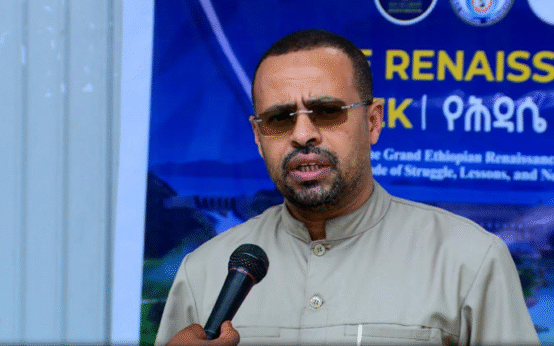Ethiopia lost its access to the sea when Eritrea became independent in 1991. Since then, the country has had to rely on its neighbors’ ports. Now, as Ethiopia grows fast in population and ambition, many argue it cannot stay landlocked forever. Professor Brook Hailu of Addis Ababa University says Ethiopia must pursue peaceful, lawful means to regain or secure coastal access. The matter is not only about geography it touches on economics, regional diplomacy, and Ethiopia’s future.
Why Ethiopia feels urgency to change its landlocked status
Ethiopia’s population now exceeds 128 million people and is growing by over 2.7 million per year. At the current rate, experts expect it may pass 150 million within 15-20 years. With this growth comes increased demand: more imports, more exports, more people expecting jobs, infrastructure, health services, and development. Being cut off from the sea adds costs. Imports and exports must travel through other countries, adding time, delays, and extra fees.

Professor Brook Hailu argues that the landlocked status acts like an economic drag. For people who produce goods coffee, textiles, agriculture, being far from ports or relying on transit through other nations raises transport costs. For consumers, imported goods cost more. For government, infrastructure and trade logistics become more complicated. Given these pressures, Ethiopia sees securing sea access as essential for achieving its development goals.
The peaceful strategies Ethiopia supports to regain sea access
Brook emphasizes that Ethiopia seeks peaceful and diplomatic routes. Rather than conflict or force, it wants agreements with neighboring coastal countries such as Somalia, Djibouti, Somaliland, or even Eritrea based on mutual benefit. These could take forms such as leases, port usage contracts, land swaps, shares in companies.
Also, Ethiopia has recently engaged in a Memorandum of Understanding with Somaliland to access ports like Berbera. This agreement includes shared economic opportunities and mutual cooperation. Ethiopia also seeks to strengthen trade corridors and transit agreements so its goods can pass more easily through coastal states with less delay or friction.
Legal, diplomatic, and historical foundation of Ethiopia’s claim
International law supports certain rights of landlocked countries to access the sea through neighboring states. Though having rights does not guarantee access without negotiation, it places the issue on firm ground. Ethiopia cites this legal backing in its diplomacy.

Historically, Ethiopia used to have direct access through ports like Assab and Massawa when Eritrea was part of Ethiopia. After Eritrea’s independence, Ethiopia lost those outlets. The loss has been difficult not only economically but psychologically for many Ethiopians. Professor Brook points out that past decisions to no longer press for sea access under some regimes were motivated by priorities of peace or internal stability, but today Ethiopia believes it can balance diplomacy and assertiveness to restore access.
Potential benefits if Ethiopia secures a sea outlet
If Ethiopia obtains reliable access to the sea, many benefits could follow. Trade would become cheaper and faster. Exporters could move goods directly without steep transit fees. Import costs for fuel, machinery, raw materials could drop. These savings free up resources for health, education, infrastructure.
A coastal access could also improve Ethiopia’s regional role. It could foster stronger trade alliances, more investment in ports and related infrastructure, and possibly development of maritime services. It would also reduce Ethiopia’s dependence on any single port such as Djibouti, which can be risky if that route becomes disrupted.
Moreover, having sea access could enhance national morale, strengthen sovereignty, and help attract foreign investment because investors often prefer logistics with less friction.
Key challenges Ethiopia must navigate
Even though many see sea access as desirable, there are real obstacles. First, neighboring states have sovereignty concerns: granting territory or some control or shared rights over ports may feel risky politically. Countries like Somalia or Djibouti will want fair terms and guarantees.
Infrastructure investment is costly. Ports, road/rail connections, customs and transit systems, security all need funding, planning, maintenance. There might be legal, logistical, and environmental constraints. Agreements must respect each country’s laws, environmental concerns, maritime regulations, and historical sensitivities.


 Ethiopia Launches National Health Rehabilitation Center
Ethiopia Launches National Health Rehabilitation Center  Ethiopian PM Highlight Security Institutions for National Sovereignty
Ethiopian PM Highlight Security Institutions for National Sovereignty  Ethiopia’s GERD Diplomacy Inspires African Nations
Ethiopia’s GERD Diplomacy Inspires African Nations  Ethiopia’s Success Stems from Unity and Perseverance
Ethiopia’s Success Stems from Unity and Perseverance  Ethiopia, UN Urge COP30 to Deliver for Africa’s Climate Ambitions
Ethiopia, UN Urge COP30 to Deliver for Africa’s Climate Ambitions  Ethiopia Deepens Commitment to Fight Money Laundering
Ethiopia Deepens Commitment to Fight Money Laundering